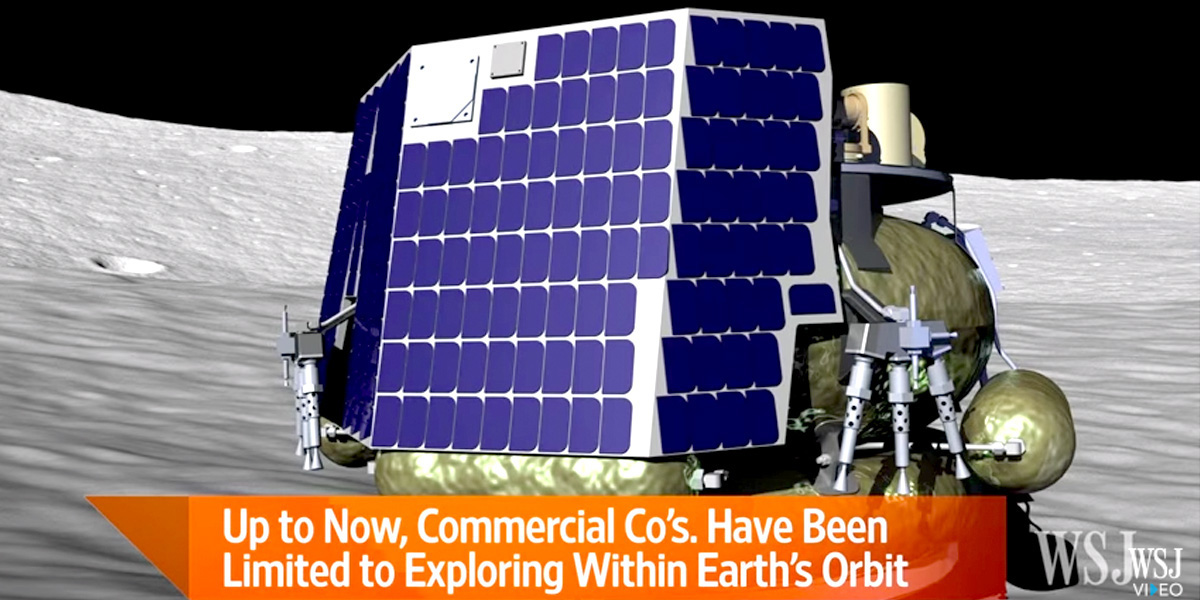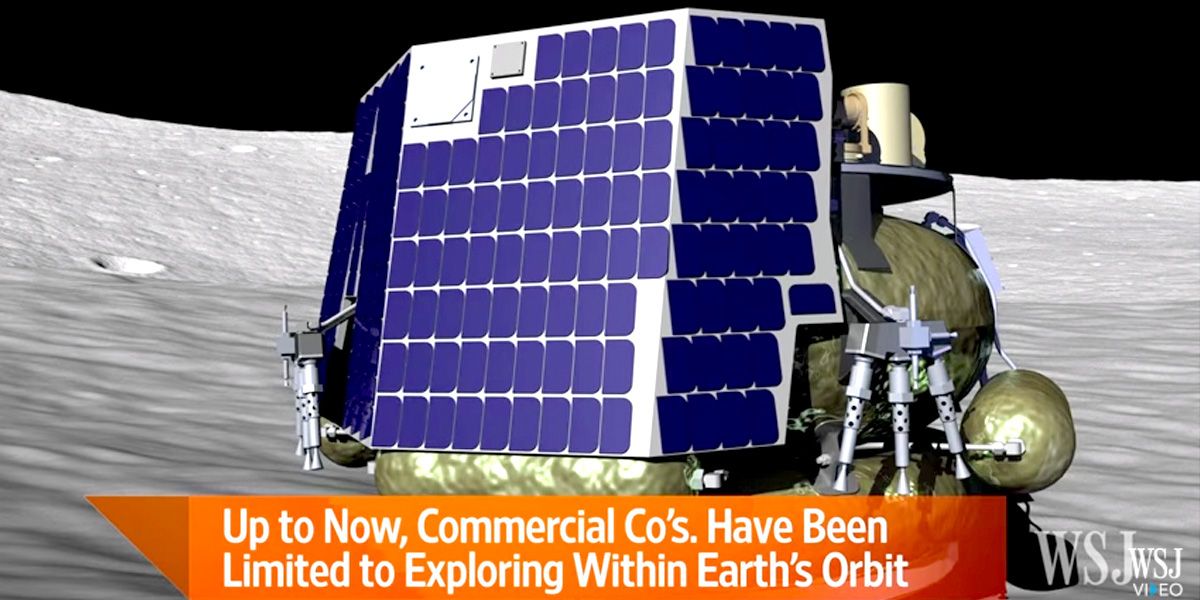

For the first time in history, the U.S. government has
approved a private company’s plans to visit the moon.
The lunar mission will be undertaken by Cape Canaveral, Florida-based
Moon Express, Inc., an aerospace startup founded in 2010 by space entrepreneurs Dr. Robert (Bob) Richards, Naveen Jain and Dr. Barney Pell.
The landmark approval was given to Moon Express after meetings with the Federal Aviation Administration (FAA), the White House, the State Department NASA and other federal agencies.
The company plans to send a 20-pound, unmanned spacecraft beyond Earth’s orbit to the surface of the moon in 2017. If everything goes to plan, Moon Express will become only the fourth entity in history to soft-land on the moon following the U.S., USSR and China, as
TechCrunch noted.
Jain enthusiastically described the ambitious moon-landing project to the Wall Street Journal:
If the maiden trip proves successful, the company plans to mine and retrieve rare elements and metals from the moon in future missions.
“This breakthrough U.S. policy decision provides authorization to Moon Express for a maiden flight of its robotic spacecraft onto the Moon’s surface, beginning a new era of ongoing commercial lunar exploration and discovery, unlocking the immense potential of the Moon’s valuable resources,” the venture’s
press release states.
Unsurprisingly, this unprecedented commercial space mission opened up a can of interstellar worms—space regulation is under jurisdiction of the United Nations. As TechCrunch described, Moon Express bought its lunar craft from Rocket Lab on October 2015 before it even had government permission to launch it. The company also did not have the approval to keep what they find on the moon.
But then in November, President Obama signed the U.S. Commercial Space Launch Competitiveness Act into law that allows private companies to keep any resources taken from outer space.
Still, the company did not have clearance to make the trip. To get around this regulatory hurdle, according to TechCrunch, “Jain explained that representatives from multiple federal agencies, including the State Department and the NSA worked together to determine that the FAA, which is already responsible for granting launch licenses to rocket companies, should be the official point of contact for this type of activity.”
To get final government approval for the mission, Moon Express had to ensure it was not breaking space law, as The Verge explained:
Moon Express tried to address three critical provisions of the Outer Space Treaty. First, nations must continually supervise all of the space missions that happen within their borders. Moon Express told the FAA it would frequently update the agency with information on the 2017 trip, so that the government could oversee it. The second rule is not messing with other nations’ spacecraft or space operations. On the Moon, that mostly means respecting the Apollo sites, and Moon Express assured the government that it wouldn’t disturb these areas. “Don’t do wheelies over Neil’s footprint,” joked Richards.
Finally, Moon Express had to show the State Department it would abide by the Outer Space Treaty’s provision that is meant to prevent people from contaminating other worlds, called planetary protection. If companies like Moon Express want to land on a body in outer space, they have to be careful not to spread too many bacteria on the surface. Fortunately the Moon doesn’t host life, so Moon Express doesn’t have to worry too much about contamination. In its voluntary disclosures to the federal government, Moon Express gave the FAA all its data about how it would adhere to the rules of planetary protection.
“The Moon Express 2017 mission approval is a landmark decision by the U.S government and a pathfinder for private sector commercial missions beyond the Earth’s orbit,” Richards said. “We are now free to set sail as explorers to Earth’s eighth continent, the Moon, seeking new knowledge and resources to expand Earth’s economic sphere for the benefit of all humanity.”
Thrilled to announce formal USG approval for our Moon Express 2017 mission https://t.co/4YxItqdbfm pic.twitter.com/bHNp38fv7g
— MOON ΞXPRΞSS (@MoonEx) August 3, 2016
“The sky is not the limit for Moon Express—it is the launchpad. This breakthrough ruling is another giant leap for humanity. Space travel is our only path forward to ensure our survival and create a limitless future for our children,” Jain said in the release. “In the immediate future, we envision bringing precious resources, metals, and Moon rocks back to Earth. In 15 years, the Moon will be an important part of Earth’s economy, and potentially our second home. Imagine that.”
The company has a long-term mission of exploring and developing lunar resources for the benefit of humanity and a short-term mission of providing lunar transportation and services for government and commercial customers.
Moon Express hopes to win $30 million from the Google Lunar X-Prize to fuel their lunar mission.
An actual race on the Moon is going to take place in 2017. Seriously! (@GLXP #GLXP) https://t.co/txc2MwVWMG @IFLScience
— XPRIZE (@xprize) July 21, 2016

 233k
233k  41k
41k  Subscribe
Subscribe 
